Director

Eduardo Mercado III
My research has focused on understanding the neural and cognitive mechanisms that enable individuals to learn and improve basic cognitive skills such as recognizing and remembering actions, events, and percepts. I view cognition as a dynamic process that depends on the coordination of vast numbers of relatively simple neural circuits, many of which can be gradually reorganized to provide greater functionality. Research in the lab involves efforts to develop computational theories that instantiate such mechanisms; behavioral and neurophysiological experiments designed to test the predictions of these theories; and comparative studies to determine the generality of current theories.
email: emiii@buffalo.edu | Guggenheim Foundation Fellow | Harvard Radcliffe Institute Grass Fellow | Faculty Overview
Current Students

Yan Chen
Yan Chen is a current doctoral student interested in how people process complex auditory sequences and how auditory processes can change over time.
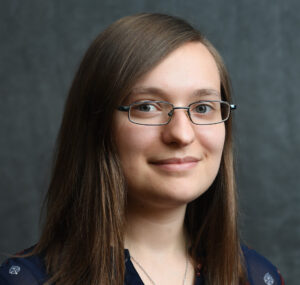
Stacy Moppert
My research mainly focuses on how autism can impact neural mechanisms as well as basic learning processes. I examine neural mechanisms through neuroimaging techniques such as fMRI and fNIRS. My current research uses neuroimaging to examine the relationship between learning and autistic characteristics in a neurotypical population.
Alumni

Natalie Ball
I am currently studying the behavioral and neurophysiology correlates of change deafness, a phenomenon that occurs when changes in auditory scenes go undetected. I have been using ERP to explore the neural mechanisms underlying auditory scene change detection and deafness. I am also interested in developmental trajectories of neurodevelopmental disorders and environmental-based treatments.
email: njball@buffalo.edu
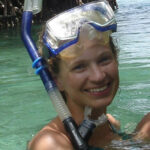
Patchouly Banks
My research focuses on the perceptual and cognitive abilities of bottlenose dolphins. I am currently conducting studies of auditory search behavior by echolocating dolphins at the National Marine Mammal Foundation in San Diego, where I am also the Internship Coordinator for the Navy Marine Mammal Program’s Animal Care and Training Internship. I also have been involved in field studies of singing humpback whales in Puerto Rico, dynamic visual perception in California sea lions, shell switching behavior via chemical cues in hermit crabs, auditory discrimination in laboratory rats, and auditory distance perception in humans.

Karen Chow
I completed a Ph.D. in cognitive psychology. I received my B.S. in cognitive science and B.A in music from UC San Diego, M.M. in piano performance from Boston University, and MSc in music, mind, and brain from Goldsmiths, University of London. Previously, my research looked into assessing absolute pitch abilities and effects of altered pitch feedback in keyboard performance. My current research interests lie in musical experience and arousal in learning and performance.
email: kchow3@buffalo.edu
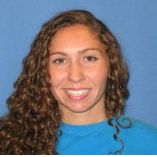
Brittany McIntosh
My research in the Evolution, Ecology, and Behavior program focused on using neural networks to classify dolphin whistles according to whether they were produced by males or females, or based on whether the whistling dolphin was young or old. I’m generally interested in how marine mammals use sound to mediate social interactions. As a student in the evolution, ecology, and behavior program (EEB), I was also able to explore my interests in animal behavior, comparative cognition of mammals as it relates to evolution, and animal conservation.
email: bmcintos@buffalo.edu
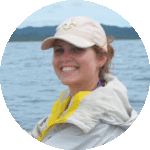
Christina Perazio
I completed a Ph.D. in the evolution, ecology, and behavior program at UB. My research focuses on various acoustic analysis techniques in an understudied population of humpback whales off the Pacific coast of Colombia with a goal of understanding the role song plays on the breeding grounds. I have a B. S. in psychobiology and marine biology from the University of New England and an M. A. in experimental psychology from the University of Southern Mississippi. I am also an assistant lecturer in animal behavior at the University of New England.
- Perazio, C. E., Zapetis, M. E., Roberson, D., Botero, N. & Kuczaj II, S. (2018). Humpback whale, Megaptera novaeangliae, song during the breeding season in the Gulf of Tribug?, Colombian Pacific. Madagascar Conservation & Development. http://dx.doi.org/10.4314/mcd.whales.1
- Perazio, C. & Kuczaj II, S.A. (2017). Vocalizations produced by bottlenose dolphins (Tursiops truncatus) during mouth actions in aggressive and non-aggressive contexts. International Journal of Comparative Psychology. uclapsych_ijcp_31591. Retrieved from: http://escholarship.org/uc/item/01x7h4x2
email: cperazio@buffalo.edu

Milen Radell
Ph.D., Behavioral Neuroscience, University at Buffalo, SUNY, 2013. I have been heavily involved in the development of computational neuroscience models of learning, including a circuit-level model of cerebellar processing in conditioning and connectionist models of auditory perceptual learning. The goals of these simulations are to advance theoretical understanding of the neural mechanisms of learning and generalization, and to generate precise, testable hypotheses that can be used to evaluate the predictive utility of current psychological and neuroscientific theories.
Wisniewski, M. G., Radell, M. L., Guillette, L. M., Sturdy, C. B., & Mercado, E., III (2012). Predicting shifts in generalization gradients with perceptrons. Learning & Behavior, 40, 128-144.
Radell, M. L., & Mercado, E., III (2014). Modeling possible effects of atypical cerebellar processing on eyeblink conditioning in autism. Cognitive, Affective, and Behavioral Neuroscience. doi: 10.3758/s13415-014-0263-1
email: milenre@gmail.com

Allison Scagel
I am a PhD student in behavioral neuroscience. My research interests are focused on dog behavior, specifically how dogs learn. I hope to use my findings, as well as my background in dog training, to develop applied behavior modification procedures and improve dog training techniques to aid clients whose dogs exhibit problem behaviors. My ultimate goal is to be certified as a Certified Applied Animal Behaviorist and run my own behavior consulting business.
email: ascagel@buffalo.edu
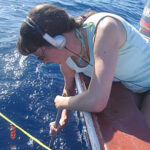
Jennifer Schneider
Ph.D. Ecology, Evolution, & Behavior, University at Buffalo, SUNY, 2010. Currently: Assistant Professor of Psychology at LCC International University in Klaipeda, Lithuania. My research explores how animals sense, perceive, and interact with their environments, particularly in situations involving conspecifics. My research projects have included elements of acoustic communication, contextual/behavioral analysis, auditory perception, learning and memory processes, and computational modeling of neural systems. My work in the NCP lab included exploration of the information content of humpback whale song, including individual identification cues and localization cues indicating distance and direction of a singer. I am currently working on a project investigating how Black Sea dolphins use visual and auditory information to explore novel objects.
- Schneider, J. N., Lloyd, D. R., Banks, P. N., Mercado, E, III. (2014). Modeling the utility of binaural cues for underwater sound localization. Hearing Research, 312, 103-113.
- Mercado, E., III, Schneider, J.N., Pack, A.A., & Herman, L.M. (2010). Sound production by singing humpback whales. Journal of the Acoustical Society of America, 127, 2678-2691.
email: jns5@buffalo.edu | Research Gate Profile

Alexandria Walter
I’m a masters student studying general psychology. I graduated from Canisius College in 2018 with a Bachelors of Science in Psychology and Animal Behavior, Ecology, and Conservation. I’m currently working on two studies in the lab. I’m working with Karen and her physiological stress research, and I’m working with Natalie and her memory research. I’m hoping to continue onto a PhD and become a professor.
email: awalter@buffalo.edu

Matthew Wisniewski
Ph.D., Cognitive Psychology, University at Buffalo, SUNY, 2013. My research combines behavioral, neurophysiological, and computational approaches toward understanding how learning is impacted by various training conditions. I have focused on understanding the mechanisms underlying classic learning phenomena such as the peak shift effect and the easy-to-hard effect. I have also used advanced signal processing approaches to disentangle the cortical mechanisms of perceptual learning using high density EEG recordings in collaboration with Scott Makeig’s laboratory within the Temporal Dynamics of Learning Center, and in my current postdoctoral position at the Air Force Research Laboratory.
- Wisniewski, M. G., Mercado, E., III, Gramann, K., & Makeig, S. (2012). Familiarity with speech affects cortical processing of auditory distance cues and increases acuity. PLoS One, 7, e41025.
- Wisniewski, M. G., Church, B.A., & Mercado, E., III (2010). Temporal dynamics of generalization and representational distortion. Psychonomic Bulletin & Review, 17, 809-814.
email: matt.g.wisniewski@gmail.com